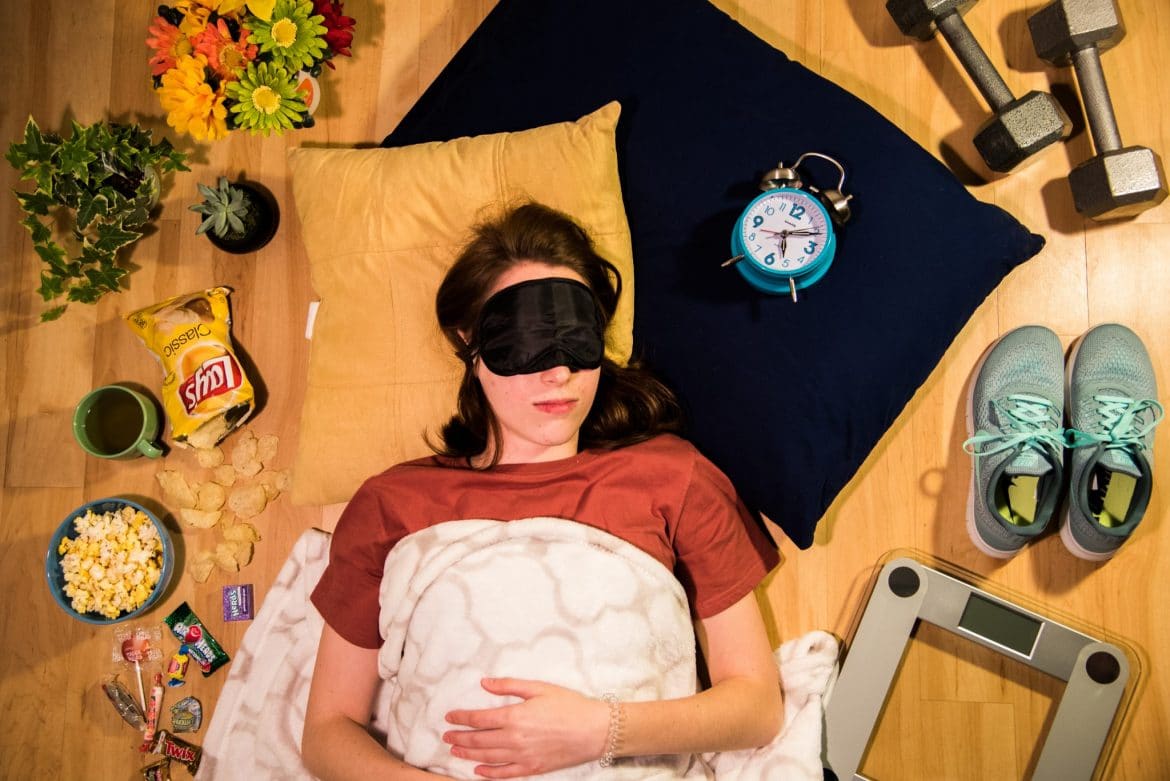Sleep + Mental Health by Bowman Johnson
Taking care of your mental health is so easy, you can do it in your sleep.
According to Dr. Travis McNeal, associate professor of psychology, people tend to function better when they acquire sufficient and constant sleep. Most people, McNeal said, need 7 hours and 30 minutes to 8 hours of sleep.
“Lack of sleep can diminish your productivity,” McNeal said. “It can increase irritability and fatigue. It’s associated with weight gain and it can decrease the effectiveness of our immune systems.”
According to the American Sleep Association, there are currently 50 to 70 million adults living with a sleep disorder in the U.S. There are two major categories of sleep disorders and several types of sleep disorders according to McNeal. The first category is dyssomnia, which is defined as difficulty getting enough sleep at the appropriate time and includes insomnia. The second category is parasomnia, which causes sleep disruptions, such as sleep terrors.
In order to improve mental health by getting an adequate amount of sleep, Rhonda Davis, director of Student Health Services, suggests committing to going to sleep at a consistent time.
“In the American culture, we just don’t know when to say no and we get into sleep deprivation,” Davis said.
According to Davis, it is important for students to prioritize sleep in order to maintain the fast-paced lifestyle a college campus often demands.
Food + Mental Health by Cayleigh Thomas
According to the Mental Health Foundation (MHF), nearly 33% of those who do not report daily mental health problems eat fresh fruit or drink fruit juice every day, compared with less than half of those who do report daily mental health problems.”
MHF also says the types of mental illnesses affected by nutrition are depression, schizophrenia, attention deficit hyperactivity disorder (ADHD), and Alzheimer’s disease.
Counselor for the University Counseling Center Briana Cunningham said proper nutrition aids the body in preforming its physical, emotional and mental processes.
“For some people, food is a coping mechanism,” Cunningham said. “For example, stress eating is very common in our culture. For some it translates to food addictions. Food addictions then create issues for the person’s health as well as the health of their relationships.”
Cunningham noted that people cannot go without food for long periods of time without endangering the life of the individual. An appropriate relationship with food should be restored.
“Anorexia many be a good example when considering a direct link between mental health and food,” Cunningham said. “Being malnourished impedes the person’s ability to process information and therefore emotions.”
Cunningham also said once a person can fuel their body by maintaining a healthier relationship with food, they can process things more efficiently and have the energy to perform daily tasks.
Exercise + Mental Health by Anna Carr
There are many things that can affect mental health, such as stress, loneliness and anxiety among other physical things such as exercise.
Kelcey Carr, a yoga instructor at Nooma yoga studio in downtown Searcy, believes that yoga is just one of the many ways to keep her mental health in check.
“I think we carry around a lot of stress and anxiety, sometimes without even knowing it,” Carr said. “Yoga allows people to slow down, breathe deeply, relax the tension in our bodies and decrease the stress hormone running through us. All of that put together boosts our mental health.”
Many yoga instructors know specific poses help relieve mental stress. Carr said that all of the poses are beneficial, and whichever ones make you the happiest help your mental health the most.
Freshman Lady Bison basketball player, Sadie Thornton, already exercises year-round. She does have to make time to clear her head in different ways even when she is already exercising.
“Exercising has always been so important to me in staying physically healthy,” Thornton said. “I never really realized how much of an influence exercising had on my mental health until I came to college.”
For many college students, having a regular routine to work out can be difficult. Junior Madison Maguffee has found it difficult to balance exercise with all of her other activities over the years.
If you are interested in trying yoga, call Nooma at (501) 492-9894, to schedule a class. Your first week is free, and they give student discounts for memberships. Another place to exercise is the Ganus Activities complex. Check pipeline for available hours.
